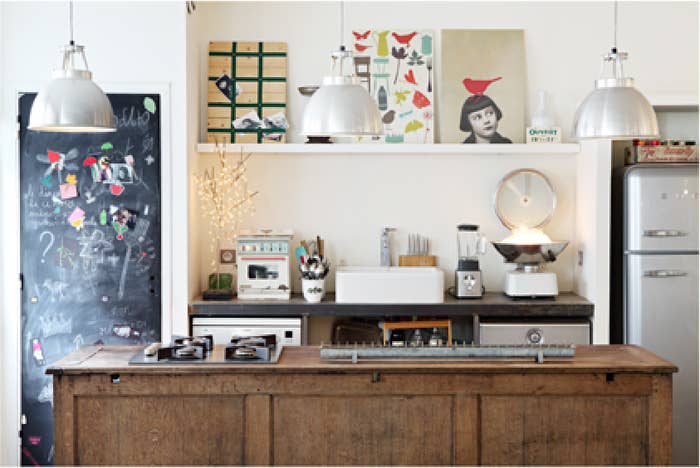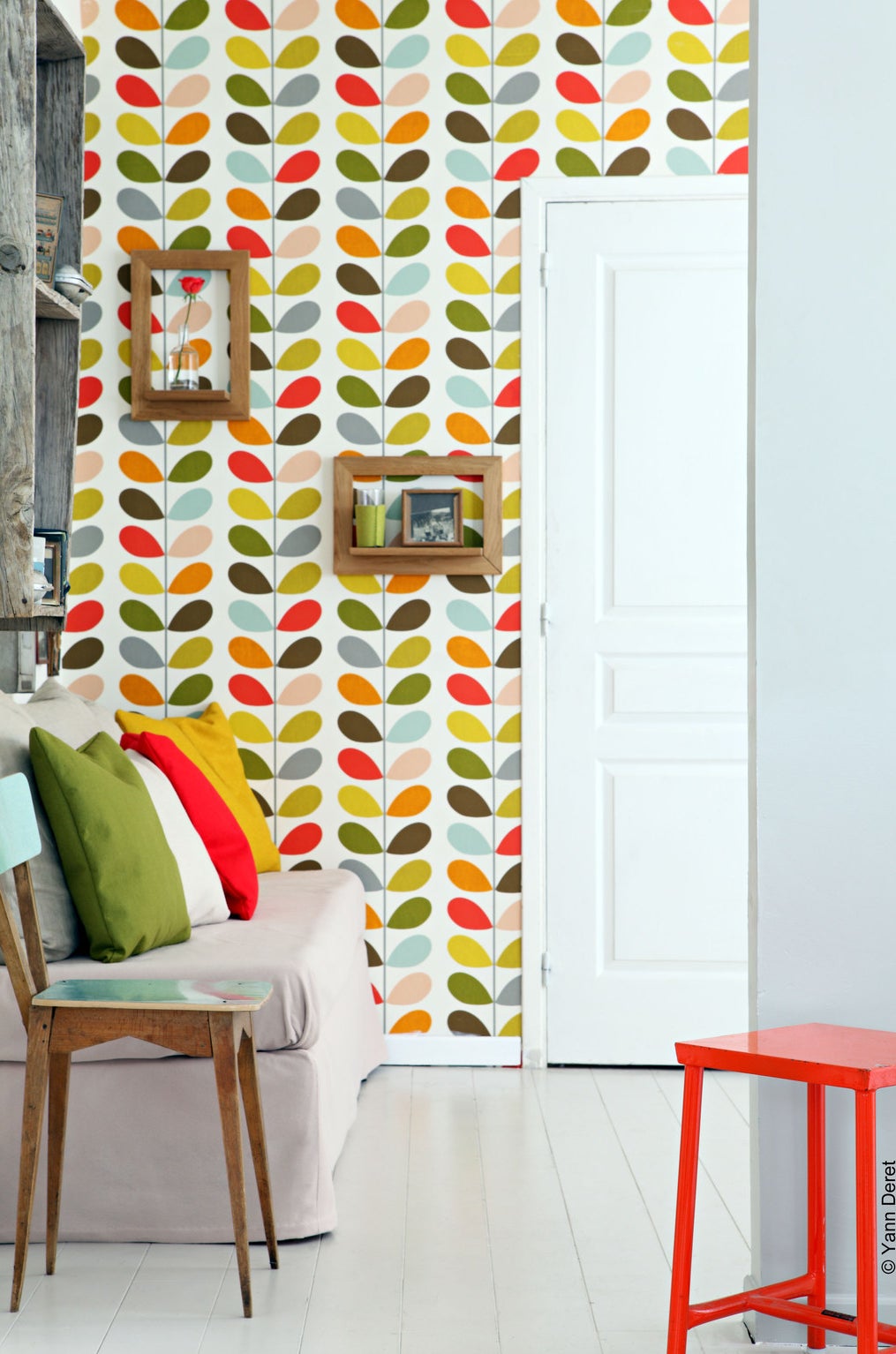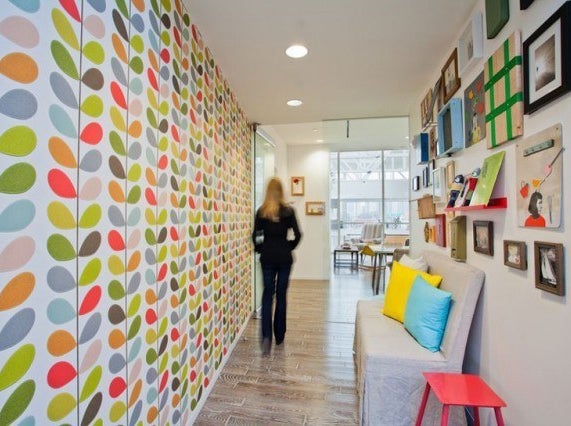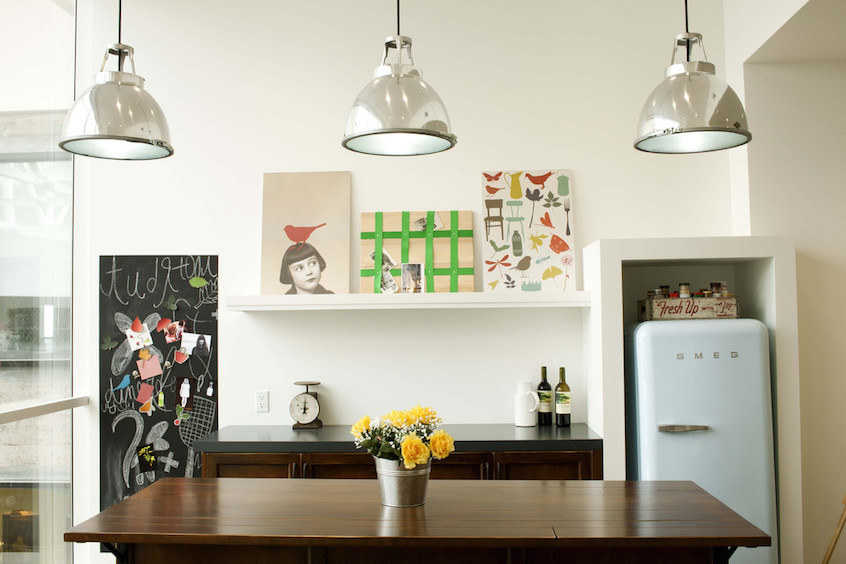Zoé de Las Cases and her husband, Benjamin Dewé, run a small interior design firm out of their apartment in Paris. The couple travels frequently to Japan and the U.S. for work, so a few years ago, they decided to make a little money while they were gone by renting their place out on Airbnb. Here's what it looks like:

In 2012, the couple say, Airbnb contacted them and asked if they could host a Paris office launch party in their home. The couple happily obliged. "We said great, we're designers," Dewé told BuzzFeed News. "We already used to rent our place for commercials." The party was a success.
But a year later, something strange happened. A friend who was familiar with the couple's Paris apartment congratulated them on their collaboration with Airbnb in San Francisco. He sent them pictures from a space in the company's headquarters designed to look just like their apartment. The problem was, Dewé and de Las Cases knew nothing about it.
When the design duo saw the extent to which their home had been replicated by Airbnb, they were immediately upset, Dewé said. Others began to notice as well.
"They are branding their company with our life," Dewé said. "We decided to go directly to the lawyer."
Airbnb has been very public about the fact that conference rooms and office spaces in its San Francisco headquarters are modeled off of popular listings on the site. One of the main spaces for meetings is based off of the apartment where CEO Brian Chesky lived when he founded the company. But it's now unclear whether the company asked permission from those hosts to copy their homes — or whether the hosts even knew that their personal spaces were becoming part of a global brand. (Airbnb declined to comment on this story.)
It's hard to tell what kind of chances the couple has with their suit. The couple's lawyer, Carole Soudri, told BuzzFeed News that there will be a hearing in Paris in December in which the company "will try to send the case to the California court," where it's based. She told de Las Cases and Dewé that the case could take five, eight, or even ten years to reach a conclusion.
"She said it will be hard to win, because they're not French," said Dewé. "They're big. And they have money to lose." Dewé said he was hoping they could reach a settlement with Airbnb, but so far that hasn't happened.
Copyright experts say it's unlikely that a case like this would fly in the United States; Lila Bailey, a San Francisco copyright attorney, said it would be a "non-starter." The legal code includes specific language about what types of works can be copyrighted — books, films, paintings, even boat hulls. "It's an explicit list," Bailey told BuzzFeed News. "But interior design is not on the list."
In France, though, it's a different story; anything that is an original work can be covered by copyright, "even a tool, or even toilets," according to Soudri. "It must be a reflection of the personality of its author," she said. "This is exactly the case here. Zoe's showroom and apartment is the true reflection of her personality." It is for this reason, Soudri posits, that Airbnb doesn't want the case tried in France.
There is, however, a legal concept called "trade dress" that could apply to de Las Cases' case in both France and the U.S. Trade dress is the idea that a company can own the branding of a corporate space. For example, if de Las Cases could prove that the branding of her space, as an interior designer, is as valuable to her business as, say, the replicated look and feel of an individual McDonald's franchise is to the larger corporation, she could have a case. Soudri said she's considering trade dress a strategic option.
David Lefranc, a French lawyer specializing in intellectual property and technology, confirmed that it is indeed possible to copyright an interior design in France. But he said the French concept that is most similar to "trade dress" — he called it parasitisme économique — is even more compelling in this case. "When a firm conducts itself like a 'parasit' (it means that it steals commercial ideas from others)," he wrote in an email, "it has to pay damages to the first person who had commercialized products based on the stolen ideas."
If this case were tried in the U.S., Bailey said, it would be difficult to prove that what they did was wrong, legally. But it's still a transgression of the community-oriented reputation the company is trying so hard to build. "You're willing to share with others," said Bailey, "but are you willing to share corporate Airbnb, and be coopted into their brand?"


On the left, an image of de Las Cases and Dewé's home. On the right, a hallway at Airbnb.
Airbnb has been lauded for its strategic use of media and design in becoming a multibillion-dollar tech company. Some have argued that it was Airbnb's deployment of professional photographers to create enticing images of host properties that made people feel comfortable booking a vacation in someone else's home before it was common practice. The company also publishes a print magazine called Pineapple. (Though it appears not to have made it to a second issue.) Whether or not you can copyright an interior design or sue a company for co-opting your domestic aesthetic, what is apparent is that Airbnb has built its chic and now highly valuable brand by drawing, at least in part, on the content its users — in this case hosts — create.


